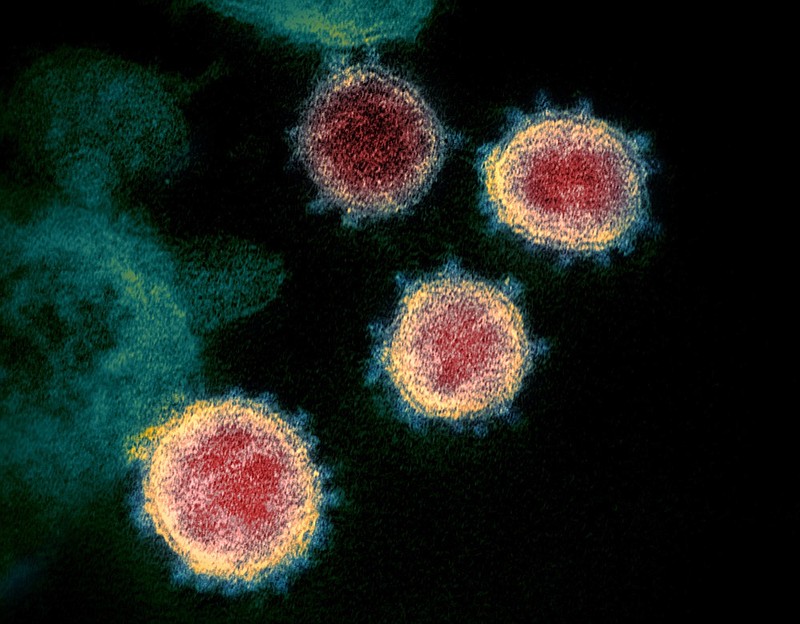For answers to frequently asked questions about coronavirus, click here.
Nothing has made the case for why we need good government more than the new and novel coronavirus known as COVID-19.
In late January, when China had nearly 10,000 confirmed cases and the World Health Organization had just declared the outbreak there a "global health emergency," a journalist with Vox asked a simple question: How does the coronavirus outbreak end?
Then, the answer was hopeful. By identifying and isolating the sick, the virus could be kept from spreading in communities around the globe. After all, that's what happened with the 2003 SARS outbreak.
But now - with 118,252 confirmed cases and 4,262 deaths worldwide - experts say that outlook seems impossible. Currently there are more than 959 confirmed cases in the United States, with at least seven in Tennessee and 17 in Georgia.
"Two or three weeks ago, we were still hoping for containment," Kent State University epidemiologist Tara Smith, told Vox last week. "We're really past that. The horse is out of the barn."
One reason has to do with what we've learned about the virus: We now know people who do not show severe symptoms can spread it silently.
But a second reason is slow government response - from the glacial rollout of diagnostic tests in the United States and other countries like Italy and Iran, to the deliberate lack of transparency, coupled with the plain, old-fashioned bungling of government planning.
Take, for instance, the revelation by a whistleblower that Health and Human Services workers were not adequately trained or given proper protective gear when working with American evacuees from the Diamond Princess cruise ship when they were quarantined due to the coronavirus. Take, for instance, Secretary of Housing and Urban Development Ben Carson's refusal to share plans for the docking and handling of cruise passengers from another ship, the Grand Princess, "particularly when it hasn't been fully formulated" but would be ready "in 72 hours." Alert: The ship was docking in Oakland, California, the very next morning. People stood in line for hours to leave the ship after infected passengers were unloaded, only to be told to return to their quarters, and most are still confined there, according to The Sacramento Bee.
Journalists with The New York Times in recent days worked feverishly to reconstruct the Trump administration's response to the coronavirus, finding "a raging internal debate about how far to go in telling Americans the truth."
Scientists and health officials sounded an early alarm, but President Trump, at the Centers for Disease Control and Prevention in Atlanta on Friday, played down the risks to "pacify increasingly frantic stock markets."
That singularly sets the tone, does it not?
In the ever-apparent vacuum of Trump's leadership, bureaucrats at the federal and state levels have stepped up. Off-camera, officials with the Centers for Disease Control and Prevention, Oak Ridge National Laboratory and other government-sponsored organizations have carefully set the record straight and worked to generate safety guidelines.
Oak Ridge, home of the world's fastest supercomputer, on Tuesday had a particularly encouraging announcement. They have focused the power of the supercomputer to search for an existing and known drug - an already tested drug - that can prevent the new coronavirus from penetrating human cells. Success would mean less safety testing time before the drug's use on patients.
(Read more coronavirus coverage here)
States like New York, California and Georgia, along with cities like Chattanooga, took actions on their own to either close schools and colleges and/or offer plans for the cleaning of public spaces and work-from-home.
Yet even some of the state efforts have been riddled with flaws, including those here in Tennessee. Lawmakers complained - rightly - that Tennessee Gov Bill Lee's administration wasn't being transparent enough as state cases doubled even in one day.
The Lee administration had stopped reporting the counties where cases were confirmed. Never mind that state Health Commissioner Lisa Piercey said during the first meeting of Lee's Coronavirus Task Force that all patients are "being taken care of and working with their local and metro health departments on contact tracing," a key element of identifying people who had come into contact with those who have COVID-19 to help stem the virus' further spread.
On Monday, Piercey said information about the state's 89 non-metropolitan counties would not be released "because many are smaller counties and patient privacy is at a premium."
Sorry. That's hogwash. And on Tuesday, the state corrected itself and reversed the policy. Rural counties especially need to know what is happening. Lawmakers also took the state to task because the officials weren't updating case numbers on the TNGov website. They released them on Facebook, of all places. Additionally, the Tennessee Department of Health tweeted out telephone numbers to call to get access to COVID-19 testing seven days a week - but the numbers haven't work as advertised.
House Democratic Caucus Chairman Mike Stewart of Nashville blasted the state's initial announcement policy, as well as the helpline: "Try calling this number. We called it five times today and you get a busy signal every time," he said. "We called over 20 departments of health this morning. And you get completely different responses. Clearly the Department of Health ... is not coordinating with local health departments to develop a comprehensive, consistent plan. You cannot have 20 different responses."
Clearly we cannot not tackle this problem without good government, but the operative word here is "good."
